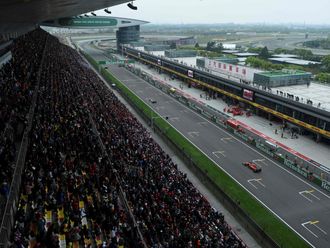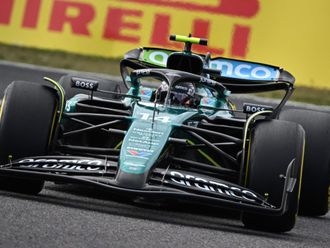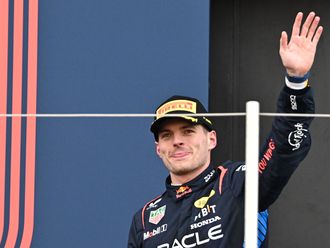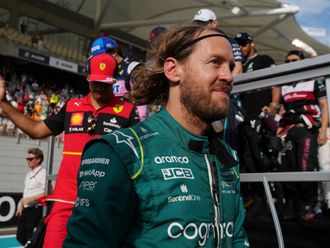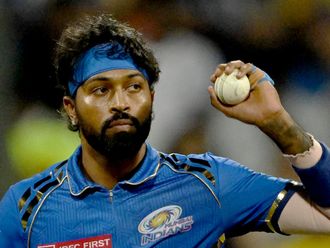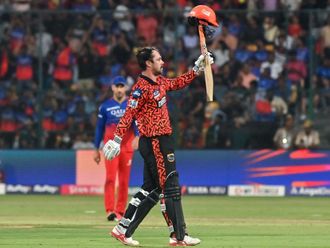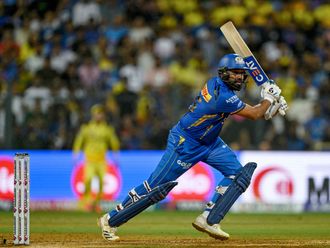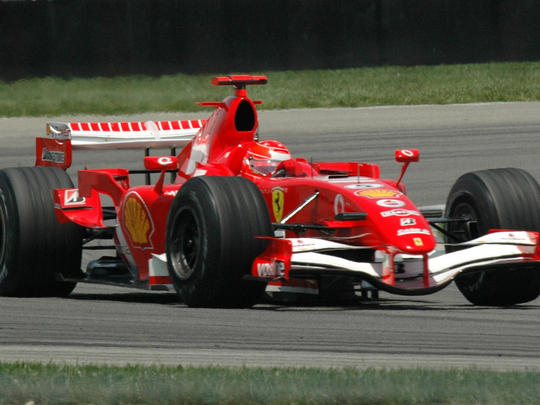
This week it was announced by the University of Sheffield that five-time world champion Juan Manuel Fangio is the greatest Formula 1 driver of all time.
It would seem curious to argue with this outcome as the great late Argentinian has long-been considered the best of them all.
But is he?
How can you compare drivers from different eras when the technology and competition are worlds apart from one decade to the next? And by what possible measure can a driver be considered ‘the greatest?’ The number of wins? Amount of titles? Who had the greatest desire? It is something that can’t be done without looking at individual areas. And that’s before we look at marginal technicalities in which drivers lost points, or only counted x amount of points from x amount of races.
The greatest? Juan Manuel Fangio at Monaco
Let’s look at Fangio quickly. Between 1950 and 1958 (he didn’t race in 1952) he competed in 51 races, winning 24 of them, and finishing on the podium in another 11. He only finished outside of the top three 16 times throughout his comparatively short time in F1 and his record of five titles stood until Michael Schumacher won his sixth in 2003.
Impressive. And he is indeed one of the all-time best.
However, Fangio never drove for an uncompetitive team. He won four of his five titles in four different cars: Maserati, Mercedes-Benz, Ferrari, and Alfa Romeo. The notion of starting in a ‘junior team’ or ‘backmarker’ and moving up through the ranks wasn’t really a thing inthe 1950s. So is it fair that he is considered the greatest ever when he never had to slog it round the track in a three-wheeled turkey?
Moving into the 1960s, Sir Jackie Stewart’s career is a different story. There was a man whose raw talent and grit landed him a drive with British Racing Motors (BRM) at the off in 1965, although he ended up debuting with Lotus in 1964. He had been around the junior circuit for a short while, but was a relatively unknown entity. He scored points on his debut and would go on to win three world titles, taking 27 wins from 99 race starts.
Stewart was phenomenal in one of the sport’s most competitive eras. He was up against the likes of two other drivers who are also hotly debated as being ‘the greatest’: Graham Hill and Jim Clark.
Jim Clark showing how it’s done
Jim Clark was a Scottish farmer who, before his tragic death in 1968, won the world championship twice. Clark was killed when he was 32, at the peak of his career. But what he had achieved in his eight-year stint was epic – but not really possible to back-up with statistics. While he won 25 races from 73 starts, the stats don’t tell you how he won them.
Without spending hours in front of the Pathé newsreels watching him slide his Lotus sideways over hill crests and pulling out staggering leads, we will never fully understand. He was immeasurably fearless.
The same traits are true with Graham Hill, the gentleman racer.
Moving into the 1970s we have the likes of Emerson Fittipaldi and Niki Lauda. Lauda should have been killed in 1976. Already a world champion, the Ferrari driver was horrifically burned after an appalling accident at the infamous Nurburgring.
The Austrian was quick, methodical, ruthless, and unusually sensible. On stats alone – 25 wins from 171 starts and three world titles – he is up there, but the man was back in the cockpit just six weeks after literally being burned alive. He lost his eyelids, his hair, and his right ear.
Niki Lauda was nearly killed in 1976 but returned six weeks later
Putting the helmet on his head caused him to scream in agony as the puss-filled burns were still raw and unhealed. Why? Because he was a racer who wouldn’t let a small thing like not having a face get in the way of winning. Again, this fact is not measurable by numbers, but the fact that he was still able to take the 1976 title fight to the last race – despite losing it to James Hunt – after still needing to have his stomach pumped of scar tissue makes him an inspiring great.
Into the 1980s and let’s look at another man who is often referred to as ‘the greatest of them all’: Ayrton Senna.
Senna’s talent was obvious even in junior categories before he made it to the big time. However his first year in the sport was in a laughably uncompetitive Toleman-Hart.
That didn't stop him.
At the Monaco Grand Prix in 1984, Senna’s debut year, he very nearly won after chasing down champion-elect Alain Prost in appalling weather. It was an awful car, but the young Brazilian had shone in a dog. It got him the attention of bigger teams and the rest is history.
Ayrton Senna hunts down Alain Prost at Monaco in 1984
Prost is another man in the ‘the greatest’ frame. The Frenchman won four titles and his record of 51 wins remains the second-best record even today. But, like Fangio, Prost never drove for an uncompetitive team. He drove one or two cars that weren’t championship winners, like the 1991 Ferrari and the early Renaults, but they were still race-winners. We never saw what he could do in an uncompetitive car.
Head-to-head between Prost and Senna, the Brazilian is usually considered the ‘greater’ driver, due in the main to the Brazilian's passion and ruthlessness to win at all costs – whether the car was a dog or not, or even if he needed to endanger himself...
The same is true of Michael Schumacher. After a single race in a below-average Jordan, the German was snapped up by Benetton. At Benetton, which was only average before his first title-winning year in 1994, he rattled lots of cages, and love him or hate him, he put on some stunning drives.
In Hungary in 1998 he was told by the Ferrari pit wall to find 25 seconds to leapfrog the McLarens to keep his title hopes alive. He did it in amazing fashion, but still walked away with the standard 10 points for first place. The same as if he’d won any other way. It was the ‘how’ that made it one of his greatest moments.
Statistically, he is the greatest of them all, and it will certainly be a while before someone tops his 91 race wins.
One of Michael Schumacher’s greatest races: Hungary 1998
After Prost retired in 1993 and Senna died in 1994, Schumacher became the de facto top man. His closest challenger, Mika Hakkinen, was quick and won back-to-back titles in 1998 and 1999, but it was to be another driver who would end up dethroning the German.
This leads us to Fernando Alonso, the next man to really dent the German’s armour. Speed, intelligence, ruthlessness and stubborness are all ticked, but is he really one of the greatest? The study puts him in third place, but is that fair?
He is often referred to as the ‘most complete package’ in Formula 1 today. Despite the fact that we’re trying to debunk statistics, we must not forget the fact that he hasn’t won a world title in ten years. The biggest stumbling block Alonso has made has been his questionable career choices - and this short-sightedness has to make you question his true greatness.
His skirmish with Lewis Hamilton in 2007 was, truth be told, pathetic. He felt threatened by the rookie and behaved like a child, bringing McLaren to its knees in the process and leaving under a dark cloud. A great driver would have upped his game on the circuit to prove just how good he was, but he didn’t. It started a chain of events that has seen him since overtaken in the record books by both Hamilton and Sebastian Vettel. He missed out on the ‘good drives’ and, especially in recent years, has made some rather defeatist comments over the team radio and in the press.
Would a true great driver really tell his team over the radio that "there's no point racing?"
In the modern age the statistics point towards Hamilton and Vettel being the top men who, once their careers are over, will almost certainly be added to the ‘greatest drivers’ list.
Forget the statistics, how great are they really?
Hamilton burst onto the scene in 2007, winning in his debut year and very nearly taking the world championship too. But he had been nurtured by McLaren for 10 years and was fully prepared – his electric performance was a direct result of the investment. And, like other greats, he has never driven for an uncompetitive team. Arguably the 2009 McLaren wasn’t much kop at the start of the year, but it improved enough for him to bag a win.
He is determined in the car every time he gets in it, and is certainly quick, but in his final year with McLaren his obvious despondency affected his on-track performance. As did the dealings of his personal life, thanks to useless management.
Sebastian Vettel, however, has driven a non-competitive car. Winning the 2008 Italian Grand Prix at a rain-soaked Monza in a tail-ending Toro Rosso was enough to convince the Red Bull bosses to promote him to the main team. And that yielded four consecutive titles, two of which were hard-fought.
However his first win at Monza in 2008 was proof that he was something special. While the car wasn’t that poor, and it had help from the main Red Bull team, it was still one of those rare occasions where the sport witnessed something special.
This column could go on and on analysing the numerous variables about what makes a great driver and you, the reader, would probably choose to ignore most of what has been written. Why? Because we all have different ideas about what makes a great driver. For some it is literally a case of who has won the most races.
For others, and I suspect this is true of most real race-fans, it is more likely to be a romantic ideal about a how a driver has won, overcoming the odds and pushing the car to its limits, triumphing on a day when others couldn’t get close. An immeasurable quality that gives you goose-pimples.
Fangio certainly achieved that, but then so did Senna, and Schumacher. Stewart did it, as did Clark, Hill, Fittipaldi and Lauda. Nelson Piquet did it, so did Prost, Alonso, Hamilton and Vettel. As did other legends like Stirling Moss, Jack Brabham, James Hunt, Mika Hakkinen and Nigel Mansell.
The ‘findings’ by the University of Sheffield miss the point and in a way devalue the meaning of greatness.
This is proven by the fact that they place Christian Fittipaldi as the 12th best driver of all time. Ironically, the only way to prove that this is balderdash is to turn to statistics: he scored a total of 12 points from 27 races, finishing fourth once. He was not a great driver by any stretch of the imagination.
Do you remember him? No, but Senna’s first lap at Donnington? Schumacher’s chase in Hungary? Lauda’s first race after his accident? Greatness is more than just numbers. That's why there isn't just one.


